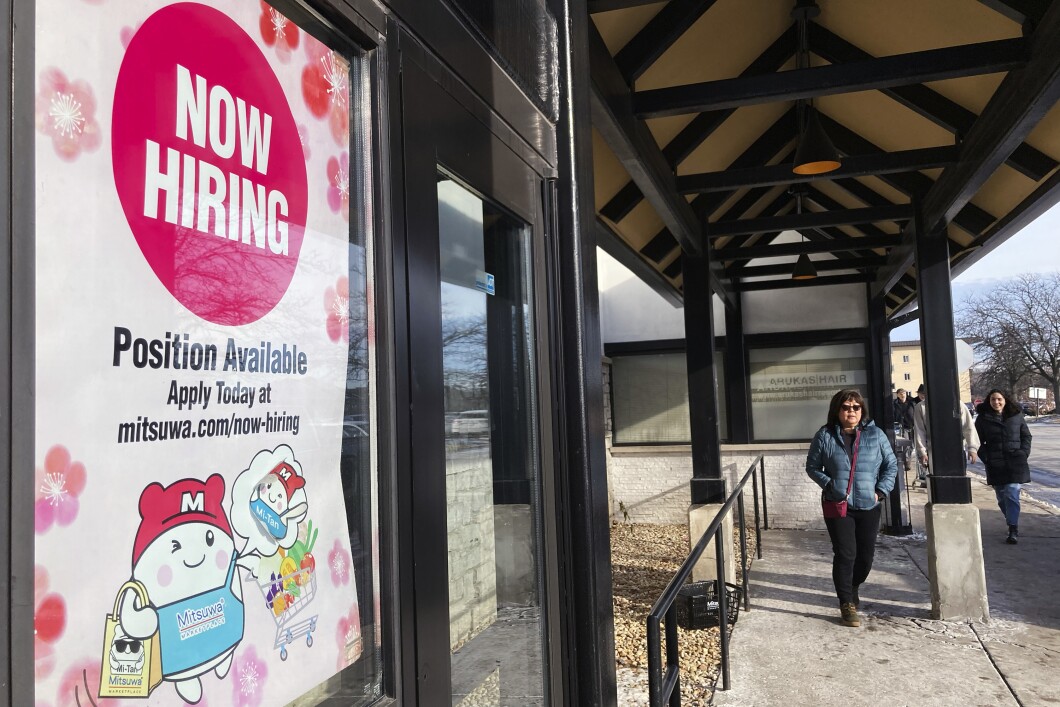
Losing a job can pull the rug out from under anyone’s feet, but there are several steps one can take while searching for new means of employment.
Many people lose their job at some point, though the time period between losing one’s job and landing a new one can be less stressful for those who have planned ahead. If someone becomes unemployed, a good strategy is to remain calm and set a course of action until one gets hired again, a financial expert told Fox Business.
IOWA UNEMPLOYMENT INCREASE RANKED THIRD HIGHEST IN NATION
“Losing your job can feel like the end of the world, particularly if you haven’t planned for this scenario,” Brad Hindman, the managing director of investments at Wells Fargo Advisors, said. “Don’t panic — this is likely just a temporary setback.”

Conduct a financial audit
The first step one can take before losing one’s job is to check one’s spending habits and divide the expenses into two categories: necessities and wants. House mortgages, rent, car payments, food, and other things that are needed to survive would be sorted into necessities, while optional payments (such as eating out, gym memberships, streaming services, and the like) would qualify as wants.
Knowing what expenses to cut out if one becomes unemployed can lead to hundreds of dollars in monthly savings, with Hindman noting he had one client save “$250-300 per month.”
“I like to think of it as being a ‘smart shopper,’” Hindman said. “You’ll be surprised at how much money you can recoup. Money has meaning and value, so using it wisely and intentionally can feel not only empowering but inspiring.”
Check how much debt you have
Hindman also recommends people to check whatever debt they may have and see if it can either be paid off immediately or if it is possible to negotiate a better rate with their creditor. A person who becomes unemployed and owes hundreds of dollars to a service provider should inform the company about the situation and try to negotiate a payment plan.
“It doesn’t hurt to ask, and you’ll find that your creditors are much more flexible if you negotiate with them before you go into arrears,” Hindman said.
Have an emergency fund on hand for your period of unemployment
Unemployed people are likely to have no income, meaning they will be relying solely on whatever money they have at the time of losing their job. To prepare for this time, experts recommend people have enough money in their emergency fund to last at least three to six months, according to investment management company Vanguard.
The emergency fund should be able to cover one’s necessary expenses, as described above. Optional payments and services, such as eating out, should not be paid for using one’s emergency fund.
Find any benefits you might have
If one is fired and receives a severance package, read through it to check and see how much money it will provide. People should also check to see what unemployment benefits, such as health insurance and life insurance, are included in the package.
“If you had healthcare coverage through your employer, you’ll need to evaluate your options,” Hindman said.
When checking one’s benefits, a person should talk to the former employer’s human resources department to understand when the coverage ends, as trying to check this alone can be stressful and unclear.
“There’s no blanket rule here: For some, coverage may end immediately; for others, it may go until the end of the month,” said Caitlin Donovan, a spokeswoman for the nonprofit National Patient Advocate Foundation, according to CNBC. “Either way, you should immediately start planning to transition to a new plan.”
Apply for unemployment benefits
Beyond one’s severance package, a newly unemployed person must contact the state’s unemployment office immediately.
“While the benefits may not amount to what you were making before, unemployment benefits can be a crucial lifeline when you can’t rely on a steady income,” Meredith Stoddard, Fidelity’s life events experience lead, said. “Each state has different benefits and eligibility requirements, so be sure to check your state’s unemployment site to understand the process and when you can expect to receive benefits.”
Manage retirement savings
Stoddard also advised people to make a plan for their retirement savings, as most companies allow employees who were fired to keep the money in their plan even after being let go — so long as the money in the plan is over $5,000.
“You can also roll over the money into an IRA with a financial institution, like Fidelity, where you have access to a full range of investment options and financial guidance. Other options are to move your money into your new employer’s plan once you get your next job, if that is an option through the new plan,” Stoddard said.
CLICK HERE TO READ MORE FROM THE WASHINGTON EXAMINER
Don’t give up
While the stress of losing one’s job can seem overwhelming, Alyssa Schaefer, a general manager and chief experience officer of Laurel Road, advises people to remain calm while they are unemployed, as doing so is key to getting back on track. She also recommends people not to be too concerned if they are required to use some of their emergency funds while they are unemployed.
“Be proud of yourself for creating one in the first place. Acknowledge that you built up savings for an emergency and you will be able to do it again once you settle into a job,” Schaefer said.





